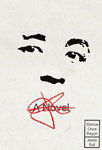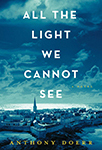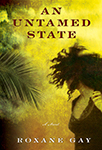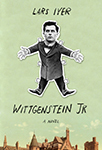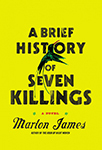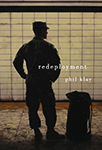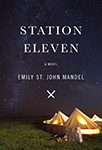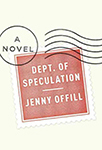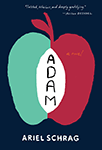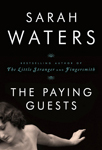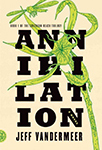by Jesse Ball
30% OFF at Powell’s »Laura Cogan: I opened my Powell’s box to find two fairly massive, wildly different novels: Sarah Waters’s post-WWI story of two women who fall passionately in love in the suburbs of London, and Marlon James’s violent, patois-laden novel about the chaos that plagued Jamaica in the 1970s and its far-reaching aftermath. I’d been warned about the capricious quality of the Rooster, and there it was, in fine feather, making a mess of my desk and my weekend plans. Length and a sense of history, you may have gathered, are nearly the only qualities these novels share: No serendipitous, subterranean threads of connection here.
I read The Paying Guests first, and from the first page I admired Waters’s smooth, graceful prose. Frances and Lillian dare to dream of building a life together in the lingering twilight of Victorian mores, at a moment of pronounced tensions between the classes and the sexes. The book sets up a historical and personal moment rich with the possibility of transformation, yet replete with obstacles.
Frances is the beating heart of this book, and Waters is an astute chronicler of her interior life. Told in a close third person, readers experience events as Frances does: We know what she knows, worry as she worries. What I did not do, however, was fall in love as she did. Though the ardency of Frances’s love for Lillian is clear, Lillian is a rather inscrutable object of desire; to my reading, her character remains only partially revealed. On the other hand, I felt such fond admiration for hard-working, fervent Frances that I could well imagine sending her off to compete in the next round.
The essential tension that develops in the first half of the book culminates in a set of questions around this relationship: Will Lillian leave her husband for Frances? Will they forge a new life together? How would their partnership (so fundamentally imbalanced from the beginning, with Frances providing nearly all the strength and clarity) fare under the enormous stress of that task? I was not optimistic, but I hoped for the best for Frances, just as one does for any friend smitten with a pretty face that carries with it plenty of baggage. (Sure, you’re suspicious that this will all end in tears. But it’s not polite to say so.) Waters situates issues of intimacy and partnership within a larger context of history and culture—potent, promising stuff.
So when, in the second half, the plot turned to a more conventional narrative of crime, investigation, and trial, I was disappointed to see that material reduced to something of a backdrop. Still, I enjoy a good crime drama, and both the crisis and the suspense of the immediate aftermath are entertaining. But there is a draining out, a slackening of tension to the last 100 pages or so, where descriptions of the legal procedures feel far too drawn out, and the diminishing passion between our two heroines leaves the narrative with little forward momentum. The conclusion, when it arrived, had an abrupt quality, leaving off just where the more unusual story of Lillian and Frances might resume.
Despite some rough patches, it is clear that Waters can craft suspense. What she does most exquisitely, however, is to trace the subtleties of those moments of emotional transition, when hopes are raised or dashed by a loaded word or gesture, when doubts and suspicions flare, and the mind, feverish with passion or guilt, travels miles of road in mere seconds. When Lillian and Frances stand on the precipice of intimacy, only to be interrupted by Lillian’s husband, Waters captures Frances’s despondency: “The moment seemed lost, the merest glimmer of a slender lure on a cast-out line that could never be reeled in.” Waters also writes beautifully about sex (a rare gift), and with chilling vividness about the gruesome physicality of death. And yet: When a novel comes so close to investigating tangled issues of class, partnership, and sexuality through the intensely focused lens of a relationship between two women, and then draws back and takes a turn for more familiar terrain, it’s hard not to wonder what might have been.
If The Paying Guests is often lovely but ultimately turns away from its more difficult subject matter, Marlon James’s A Brief History of Seven Killings is almost the exact opposite: It is nearly an assault on the senses. As one of James’s characters observes, “The problem with a book is that you never know what it’s planning to do to you until you’re too far into it.” To that point, I cannot say I relished reading the words “pussyhole” and “bombocloth” roughly 2,000 times; nor should anyone be fooled by the title, as killings and assaults number far more than seven in these pages. Yet the rewards for reading this stunning book are considerable.
The novel begins in Jamaica in 1976, where a toxic brew of political corruption, social unrest, post-colonial dysfunction, and extreme poverty all combine for a most dangerous environment. Told entirely by a rotating cast of no fewer than 11 first-person voices, the novel’s speakers are often crass, cruel, and violent. They are also, each and every one of them, multidimensional, utterly captivating, and convincing. There are characters here that will stay with me for a long time to come: the intrepid and wry Nina Burgess, running for her life and reinventing herself as she goes; the struggling journalist, Alex Pierce, visiting Jamaica for Rolling Stone but restlessly seeking a larger story.
After spending the weekend with James’s vivid and violent characters, including gang leader Papa-Lo and enforcer Josey Wales, I was in a bit of a daze, and when I returned to the office it was probably unsettling for my coworkers to hear me muttering under my breath about “Babylon” this and “shitstem” that. But that’s what this book does: It gets under your skin, grabs hold of you, and will not let go until well after the last page.
James somehow manages to sustain this chorus of narratives over nearly 700 pages and an arc that spans 15 years, building suspense and raising the stakes steadily with each section. Though the violence is prevalent and often upsetting, it is not exploitative. A steady stream of political and pop culture references (from TV, movies, philosophy, rock, reggae, disco, and Cold War history) creates a vibrant cultural context for all this action, and offers moments of levity. The dialogue is superb, and the interior monologues that make up the rest of the text are expertly crafted.
James is mindful of the pitfalls of writing fiction about an ugly period of history. In a prison interview with Pierce, Jamaican inmate Tristan Phillips describes the books in the library at Rikers:
One of them is this book Middle Passage. Some coolie write it, V.S. Naipul. Brethren, the man say West Kingston is a place so fucking bad that you can’t even take a picture of it, because the beauty of the photographic process lies to you as to just how ugly it really is. …Trust me, even him have it wrong. The beauty of how him write that sentence still lie to you as to how ugly it is. It so ugly it shouldn’t produce no pretty sentence, ever.
One notable aspect of that ugliness is the rampant misogyny, pervasive in many of the narratives. It feels completely true to the characters, but I’ll admit that I did find it distressing and, at times, exhausting. Thank goodness for the inimitable Nina Burgess; though I am saddened that she was the lone female voice in the novel, perhaps that imbalance is redeemed by what a large presence she becomes.
Between its unflinching language, detailed research, and breadth of scope, this is the kind of fiction that has a role to play in our study of history, offering a different way into historical material, awakening our sensitivities and empathies, setting synapses firing, finding unexpected connections in politics and music, philosophy, and history. James is fully aware of what he’s striving for; as Pierce notes in the final pages:
Well, at some point you gotta expand on a story. You can’t just give it focus, you gotta give it scope… Or else it’s just a report of some shit that happened somewhere and you can get that from nightly news.
This is why we read literature, rather than just the news: We read for that kind of transcendence, wherein narrative creates layers of meaning and resonance.
That The Paying Guests chooses to tell a slightly different story than I hoped to read is no criticism of the author’s craft, but merely an acknowledgment of the subjectivities of taste. There’s pleasure in The Paying Guests—but it’s simply outmatched by the gale-force power of A Brief History of Seven Killings. And though I appreciate the skill of Waters, I am haunted by the work of James. A Brief History of Seven Killings wins this round.
Elliott: In our last commentary, we talked about the chemistry between a reader and a book: Sometimes you just fall in love. And I fell in love with A Brief History of Seven Killings, which is probably not a surprise since it’s a novel driven by voice. I was seduced by the energy and ambition and brutal humor of this book. So I’m very happy with Laura Cogan’s verdict.
Laura: I was so happy! I did a little dance at my desk when I read this verdict. I thoroughly enjoyed The Paying Guests, but A Brief History of Seven Killings is dazzlingly virtuosic. It is very demanding and can be exhausting at times, by design, but I also thought it was one of the most masterful feats of voice and story that I’ve seen in a while. Supremely authoritative. And its willingness to not turn away from its very difficult subject matter, to keep turning into the difficulty, made me love it all the more.
Elliott: Right. It’s demanding because it’s dense and because there are so many characters (I had to keep referring to the cast of characters while I was reading) but most of the chapters are short. And those short chapters give a reader breathing room—you have time to come up for air after each monologue. (I think of them as monologues because each chapter is narrated in the first person by one of the main characters.) Plus, the novel’s chronology is linear, so even if a reader finds some of the stream-of-consciousness voices demanding, the novel’s structure is accessible.
Laura: So here’s an interesting thing: Anthony Doerr’s All the Light We Cannot See also has short chapters told from different perspectives in the present tense. Superficially, at least, it’s a similar approach, but for both of us it seemed to yield a different effect.
Elliott: It’s true. In that book, the form distanced me from the material. Whereas here, because the chapters are all narrated in first person, and because the writing is so visceral, I felt like I was inside the story.
Laura: And that’s a testament to the power of the first person, when it’s done very well: that sensation of being within the character, as opposed to viewing them from afar.
Elliott: So many of my favorite books are narrated in the first person: Moby-Dick, Lolita, The Great Gatsby, Mating, Elena Ferrante’s Neapolitan novels…
Laura: There are few things more magical in literature to me. That tension between the story the narrator is consciously telling and the one they’re unconsciously telling, the way those two stories can run parallel to one another.
Elliott: And what a narrator is choosing not to tell us, what he or she can’t say. There’s so much tension in A Brief History of Seven Killings. And there’s suspense, too. But the real thrill, for me, is the prose. I read a few chapters out loud, to myself, just to savor the percussive brilliance of the language. The chapters narrated by Demus and Bam-Bam after the assassination attempt on Bob Marley killed me. The men are running from their crime and they are alone and terrified and lost and coming down off their cocaine highs. Man, the writing is powerful. And I can’t stop thinking about the chapters narrated by Nina Burgess—her voice is so vulnerable and so self-aware and sharp. She’s an unforgettable character. She’s so desperate to escape Jamaica and reinvent herself. As Judge Cogan says, this novel is haunting.
Laura: A lot of times when I read books with multiple first-person narrators, the voices don’t feel all that distinct; you can kind of see the author behind each one, and it takes a little more magical thinking to buy that these are different characters speaking.
Elliott: One thing I noticed: Almost every character, at one point or another, says, “I thought, but didn’t say,” or “I wanted to say, but didn’t.” It seems like a James tic and it annoyed me. These characters say a lot, though. I mean, this book is almost 700 pages long!
Laura: Right. When the author’s own tics come through on the page, it can pull you out of the story.
And it’s not easy to sink into this particular story at first. As you said earlier, because there are so many voices, and because they are each so distinctive and intense, this book asks a lot of the reader up front. It can be hard to get your bearings, and it took me probably 100 pages before I felt fully settled. For some readers, the spell might never be cast. A part of me can’t help but crankily think of the great short novels that practically tell their entire story in 100 pages, but (obviously) A Brief History is after an ambitiously all-encompassing scale in terms of world and I have to say, it totally crushed my big-book bias. I was like, yes, this book absolutely needed this much space. James did something really interesting with all that space.
Elliott: It may be called A Brief History, but there’s nothing brief about it. I suppose that’s the point: Jamaica’s violent history is complicated, so it can’t be told quickly. And it can’t be told in one voice because there’s no central narrative. There are competing stories and factions, so the multi-dimensional form enhances the content. Jamaica was caught in the crossfire of the Cold War, and the drug war, so this is an epic involving local gangs, CIA operatives, Castro loyalists, and Colombian cartels. This book is a wild ride, but it also feels urgent and true and necessary. And I always want fiction to feel necessary and true.
Laura: Another thing about that wild ride: A Brief History is very micro and very macro at the same time. Macro in the sense that there the larger stories you mentioned sprouting up around the characters and micro in the sense that we’re convincingly inhabiting these different consciousnesses. Few books are able to look out and look in so powerfully, and I think that’s another quality that set this one apart from The Paying Guests.
In other ToB news, it’s time to wave our final goodbyes to The Paying Guests, which didn’t receive enough votes in our reader poll to unseat either All the Light We Cannot See or Station Eleven as potential Zombies. In tomorrow’s match, An Untamed State will face off against Those Who Leave and Those Who Stay, with a winner to be determined by J. Courtney Sullivan.


